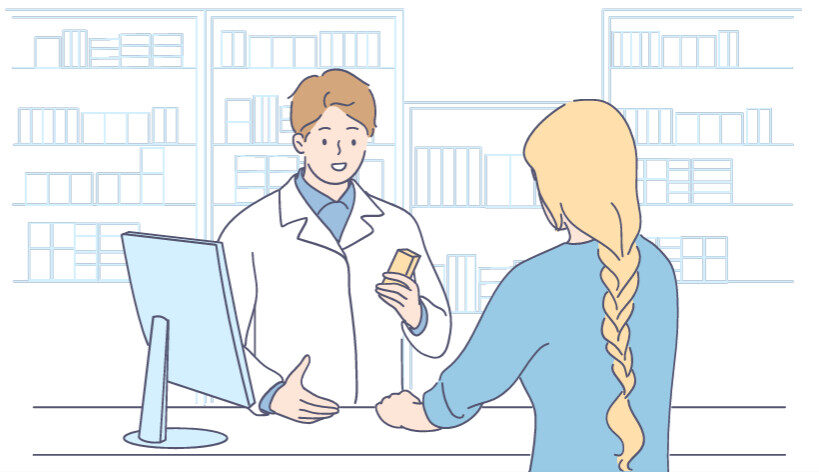Home » Why has the IPU not endorsed the new HRT Arrangement?

On Budget Day, 1 October 2024, community pharmacists were somewhat surprised when Stephen Donnelly TD, the then Minister for Health, announced “Free HRT”. Why the surprise? Well, this was the first time we were made aware of the Minister’s intention. Talk about putting the cart before the horse! As if the lack of consultation was not bad enough, when the budget dust settled and the fine print was read, it transpired that it was “Free HRT products only”. That detail was lost on many, including our HRT patients, who genuinely expected no pharmacy costs from 1 January 2025.
Community pharmacists were understandably angry and took to the airwaves. The IPU held back, believing a solution that matched public expectations would come through engagement, not confrontation. This decision was made despite a familiar pattern: no consultation with the profession before the announcement.
Prior to this in August 2024, with the publication of the Expert Taskforce report, we saw, for the first time in my lifetime as a pharmacist, a clear government policy direction from the Department of Health, led by our previous Minister for Health, Stephen Donnelly, to support the expansion of the role of pharmacy. The publication of this report and the recognition of the future role envisaged for community pharmacists was welcomed. The profession was optimistic that real progress would at last be made in facilitating us to practise to our full scope. More importantly, it would enable us to deliver a wider range of healthcare services to our local communities, which we know they want and, in fact, need.
There was further reason for optimism contained within the Programme for Government: less administration, recognition of our role in managing medicine shortages, a common conditions service, and, at long last, a commitment to review our fee structure. This comes after 17 years of no adjustments, despite significant and persistent increases in our costs.
The legislation to enable “Free HRT products” passed through the Oireachtas at speed. Despite this, we still had not been contacted by the Department of Health or the Minister about this arrangement. The IPU had, of course, written to the Minister seeking a meeting, and clarity on the situation. It took fifty-six days from the Budget announcement to secure our first meeting with officials.
Since then, we have spent months in discussion with officials and the new Minister, trying to find a resolution. Despite our genuine efforts, agreement could not be reached.
The Minister for Health then took the unusual step of writing directly to individual pharmacies announcing a new arrangement to provide free hormone replacement therapy (HRT) through community pharmacies, framed as a measure to improve access and eliminate financial barriers for patients. The proposal is due to take effect on 1 June 2025. The Minister invites pharmacists to opt in. Under this arrangement, pharmacies would receive a professional dispensing fee of €5.00 for each HRT item supplied, along with a once-off €1,000 grant to cover set-up costs.
Following this announcement, the IPU welcomed the recognition of the pharmacist’s professional role in women’s health. It was encouraging to see an important policy shift that included a state-funded professional service fee, not just reimbursement for the medicine itself. That kind of acknowledgement matters. However, despite the progress, the IPU could not reach agreement with the Minister for a number of reasons, and I believe the reasons are worth stating plainly.
Chief among them is the proposed professional dispensing fee of €5.00 per HRT item, a figure rooted in rates set more than 17 years ago during an economic recession. To put that in context, the Free Contraception Scheme introduced in 2022 agreed a professional service fee of €6.50 for a similar women’s health service. Under the new HRT arrangement, pharmacies are being asked to move women from private care to a publicly funded model, and in doing so, potentially lose income while continuing to deliver a highly professional and personal service. That is not a sustainable ask, and it certainly does not reflect the value of the work we do.
Since the end of November 2024, when we had our first constructive engagement with Department officials, the IPU has made several substantive submissions to seek resolution on this issue. Our proposals sought a €6.50 professional service fee to fairly reflect the cost of delivering safe and regulated care, especially given the ongoing medicine shortages in this therapeutic area and the frequent use of Exempt Medicinal Products (EMPs).
The IPU believes provision of HRT free at the point of supply, has real potential to improve access for many women who need it most. It is a positive step in principle, but potential alone is not enough. For this initiative to succeed, it must be underpinned by sustainable funding, clear operational supports, and a model that works in practice, not just on paper. That is particularly important for under-resourced pharmacies, that are already stretched and cannot be expected to absorb additional workload without adequate backing. If we are serious about improving women’s health, we need to make sure the structures we put in place are both fair and functional.
“[Provision of HRT] is a positive step in principle, but potential alone is not enough. For this initiative to succeed, it must be underpinned by sustainable funding, clear operational supports, and a model that works in practice, not just on paper.”
In political terms, 1 June is still a long way off, and a lot can change between now and then. The IPU continues to hope for a resolution, and more importantly, for genuine recognition of our profession and the role we play in delivering healthcare in our communities.
In the meantime, the choice rests with individual pharmacies. Each community pharmacy must decide for itself whether to opt into the arrangement, weighing up its own capacity, staffing levels, financial situation, and practical considerations. This is not a one-size-fits-all scenario. It is a professional judgment that each pharmacy must make independently.
Public Affairs Tom Murray

IPU President
Highlighted Articles